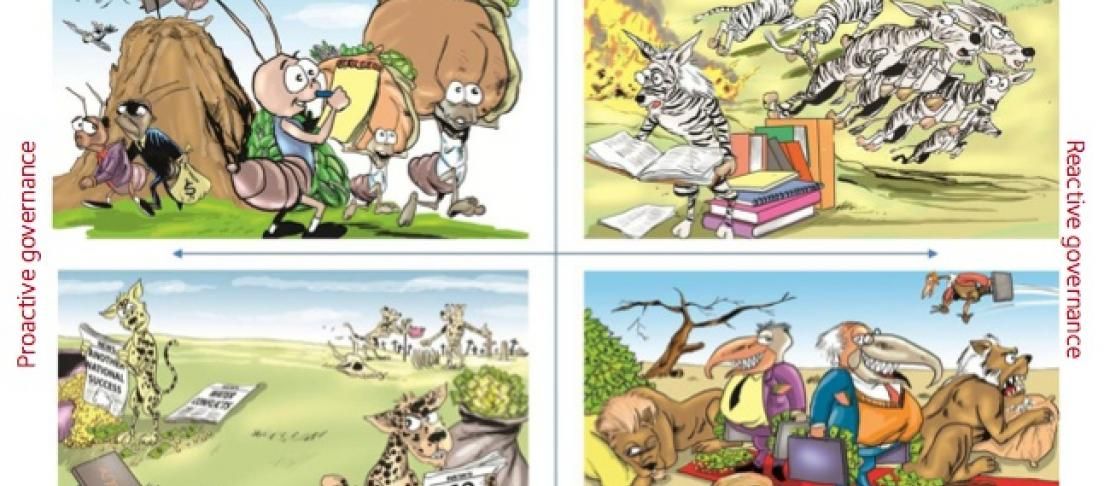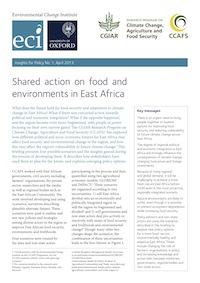Which way to food security? Four plausible futures for East Africa

What does the future hold for food security in East Africa? How do uncertain future socio-economic developments, such as changes in the degree of regional collaboration or changes in policies oriented to rural development, change East Africa’s capacity for climate adaptation and mitigation?
The CGIAR Research Program on Climate Change, Agriculture and Food Security (CCAFS) has explored how different political and socio-economic futures for East Africa may affect food security and environmental change in the region, and how this may affect the region’s vulnerability to future climate change. These futures have been captured in four scenarios, developed and used by stakeholders from governments, civil society, the private sector, academia and the media in Kenya, Uganda, Tanzania, Ethiopia, Rwanda and Burundi.
WATCH: How scenarios are developed with regional partners
 The University of Oxford’s Environmental Change Institute partners with CCAFS in leading the scenarios process. The partnership combines the CGIAR’s expertise in agricultural development, food security, adaptation and mitigation with the University of Oxford’s expertise in global environmental change and strategic futures. The Environmental Change Institute has released a policy brief that presents four scenarios and the insights gained during the process of developing them. It also describes how stakeholders have used them to plan for the future, and explores emerging policy options. This work will be presented at the Oxford Global Food Security Conference on April 27th 2013.
The University of Oxford’s Environmental Change Institute partners with CCAFS in leading the scenarios process. The partnership combines the CGIAR’s expertise in agricultural development, food security, adaptation and mitigation with the University of Oxford’s expertise in global environmental change and strategic futures. The Environmental Change Institute has released a policy brief that presents four scenarios and the insights gained during the process of developing them. It also describes how stakeholders have used them to plan for the future, and explores emerging policy options. This work will be presented at the Oxford Global Food Security Conference on April 27th 2013.
Read the Brief
Shared action on food and environments in East Africa by J. Vervoort
Read more about CCAFS work on Scenarios
Written by Joost Vervoort, Science Officer for the Scenarios activity. Joost is based at the Environmental Change Institute, Oxford University



